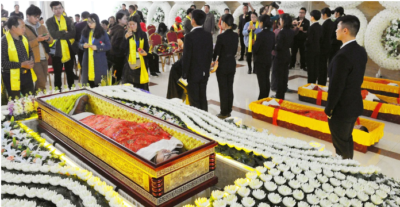– Tej Francis
Email:tejfrancis@gmail.com
WASHINGTON D.C.
HUNGARIAN GOVERNMENT URGES DEFENSE OF PERSECUTED CHRISTIANS
(CNA) The world must raise their voices and stand up for persecuted Christians, Hungarian State Secretary for the Aid of Persecuted Christians Tristan Azbej said Thursday.
Azbej was one of eight speakers at a Feb. 6 side-event of the National Prayer Breakfast that was sponsored by the organization Save the Persecuted Christians.
“All of humanity should stand up and come to the aid of persecuted Christians,” said Azbej.
Christian lives have the same dignity as those who follow other religions, he said. He questioned why stories of Christian persecution, such as the recent murder of a Nigerian seminarian, do not make the news, but when people of other religions are discriminated against, the stories are broadcast worldwide.
“Why is (Christian persecution) not on the agenda of the United Nations, of the European Union, and so on,” he asked.
“And I know there is no such thing as competition of martyrdom, but we have to talk about the proportions,” he said, noting that nearly 300 million Christians in the world are persecuted for their faith. This, he said, represents 80% of the total number of people who face persecution for their religion, meaning Christians are “the most persecuted religious group in the world.”
“It doesn’t get even a passing mention at the major human rights forum,” he said.
MANILA, PHILIPPINES
CATHOLIC LEADERS WARN PHILIPPINE DIVORCE BILL LACKS SUFFICIENT DEBATE
(CNA) Catholic leaders in the Philippines have voiced concern that a bill aiming to legalize divorce is progressing without significant debate.
“I was expecting exhaustive deliberations and discussions would be conducted on the measure,” said Father Jerome Secillano, executive secretary for public affairs at the Catholic Bishops’ Conference of the Philippines.
“I was surprised at the speed at which the committee accepted the bill,” he said, according to UCA News.
The House Committee on Population and Family Relations approved House bills 100, 838 and 2263 on Feb. 5. The bills, which would allow for divorce in the country, will be consolidated before receiving a full vote in the House.
A similar effort to legalize divorce in the previous Congressional session passed the House but failed in the Senate.
The Philippines is the only country in the world beside Vatican City where divorce is not legal, CNN reports. More than 80% of the population in the Philippines is Catholic.
The Council of the Laity of the Philippines has also opposed the measure.
CHINA
CHINA TELLS SOME PRIESTS THEY CAN’T CELEBRATE FUNERALS IN PEOPLE’S HOMES
(Catholic News Service) Christian funerals outside of churches have been banned in some areas of China as the communist government begins to enforce new regulations on religious practices.
As often happens, however, the rules are not enforced uniformly among the provinces.
In the eastern province of Zhejiang, the government has put in force a set of regulations on centralised funeral arrangements, which bans priests from attending funeral prayers outside a religious place, reported ucanews.com.
The government claims the new rules aim to “get rid of bad funeral customs and establish a scientific, civilised and economical way of funerals.”
“Clerical personnel are not allowed to participate in funerals” at homes and “no more than 10 family members of the deceased are allowed to read Scriptures or sing hymns,” the rules state.
Huang Jian, also of Wenzhou, told ucanews.com priests could visit parishioners’ homes but could not conduct any religious ceremonies or prayers.
A priest identified only as Father Guo of Henan province said government officials have asked priests to strictly follow the new regulations on religious affairs.
“Otherwise there would be penalties. The punishment could even be closing the church and cancelling the priest’s priesthood certificate, letting the priest go home,” he said.
China has banned funerals, burials and other related activities involving the corpses of deceased victims of the coronavirus that originated in Wuhan in Hubei province.





 Follow
Follow


